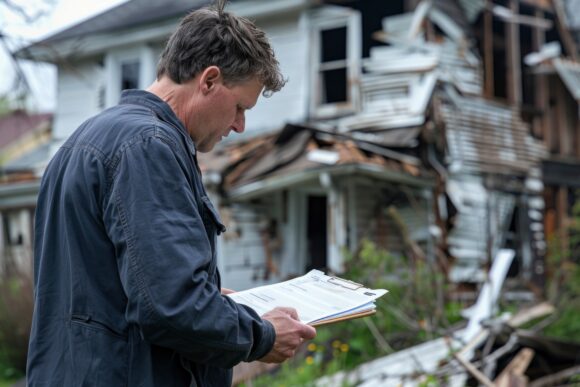In the long conflict between insurance carriers and public claims adjusters, Florida’s Citizens Property Insurance Corp. has unexpectedly altered the rules of engagement in a way that could have a big impact on some adjusters’ livelihood.
And a public adjuster group already is mulling a potential legal challenge.
“Nothing is off the table, and I can confirm that every avenue is being explored,” said Nancy Dominguez, managing director of the Florida Association of Public Insurance Adjusters (FAPIA).
She was referring to the association’s recourse after a recent decision by Citizens officials to no longer include adjusters as co-payees on insurance claims payouts.
“… Our policy requires us to pay the insured unless someone other than the insured, such as guardian or other loss payee, is legally entitled to the claims payment,” reads a June 4 draft of a Citizens letter to be sent to public adjusters when they inquire about why they were not included on the claims settlement check – a sudden change to way business has been done for years.
“Your right to payment is based on a public adjuster’s agreement that is between you and the insured and the insured is liable for the payment of parties with whom he or she contracts, not the insurer,” the Citizens letter explains.

The decision to change policies was made by Citizens’ Executive Leadership Team, which includes “senior leaders” in the state-created insurer of last resort, Citizens’ spokesman Michael Peltier said in an email.
“This procedural change makes it easier for our policyholders and does not impact any contract between a policyholder and their public adjuster, whose fees are governed by statute,” he noted.
He did not say why the change came this year, after years of insurers’ complaints about public adjusters.
The number of public adjusters that may be affected is not clear. But it could be quite a few. Citizens, with some 836,000 policies in force, remains the largest property carrier in Florida. It opened more than 42,000 claims in the first quarter of this year, which followed almost 97,000 claims in the last quarter of 2024, according to data from Florida’s Office of Insurance Regulation.
Dominguez and other public adjusters said they have not heard of other Florida insurers or other states’ last-resort carriers taking similar steps. Some states, including Alabama, do not recognize public adjusters unless they are licensed attorneys. Most states, like Florida, allow the practice if the adjusters are licensed and follow rules on fees, hours of solicitation, and other matters.
Public adjusters in Florida gained ground – and notoriety – after Hurricane Andrew slammed the state in 1992, spurring thousands of insurance claims. With the huge demand for claims services, public adjusters poured into the state, FAPIA’s website explains.
Many insurers and some public officials, including Florida’s former chief financial officer, now a Congressman, have long railed against PAs for swooping in after storms and sometimes inflating the dollar amount of claims – which triggers more claims litigation.

“We have bad public adjusters swarming impacted areas, soliciting, and trying to make a quick buck,” Patronis said in 2022 after Hurricane Ian hit the state. “Not only do individuals need more time to get out of a public adjuster contract during a state of emergency, we need to reduce the percentage a public adjuster is entitled to immediately following a storm, ensuring their motives are aligned with helping Floridians get back on their feet.”
Public adjusters have said their work gives property owners a second opinion when an insurer’s adjuster low-balls a claim amount.
Until now, most Florida insurers, including Citizens, have listed public adjusters as co-payees. That can be a cumbersome process, with adjusters having to go through a process to gather the signatures or electronic signatures of the homeowners and, in some cases, the mortgage company for the home and the contractor that repaired the property, explained Shaun Markwardt, a public adjuster based in Tennessee who is familiar with Florida.
But with only the insured listed on the check, and with the insured now responsible for paying the adjuster, disputes are bound to arise, he said.
“You’re opening up the homeowner to a lot of liability if they don’t pay the adjuster,” Markwardt said.
Dominguez agreed, noting that Citizens’ new policy will negatively impact both policyholders and licensed public adjusters. “There is no need to create further disputes in the insurance claim process,” she said.
Markwardt warned that other insurers and other states could follow Citizens’ lead if it holds up in court. “Florida and Texas tend to set precedent for other states, and Florida has shown that it is not friendly to policyholders,” he said.
Citizens’ new policy could lead to many public adjusters avoiding Florida altogether, especially if other insurers follow suit, according to the South Florida Sun Sentinel, which initially reported on the Citizens’ policy action.
That’s probably the intended effect, Dominguez said.
The step is one of several taken by Citizens and other Florida insurers to manage the cost of claims as litigation rose to what insurers have called excessive levels in the years before legislative changes were introduced in 2019 through 2023. In 2022, Citizens began offering policy endorsements that allow it to send claims disputes to a state agency for resolution.
Other carriers have introduced endorsements requiring binding arbitration in claims disputes, instead of courtroom litigation, as well as limits on the age of roofs. Claims involving roofs have historically been some of the most frequent in Florida, and some insurers have blamed “bad-actor” public adjusters for working with roof contractors to exaggerate damage and claims amounts.
Top photo: Adobe Stock/AI-generated image
Topics Florida
Was this article valuable?
Here are more articles you may enjoy.



 A 10-Year Wait for Autonomous Vehicles to Impact Insurers, Says Fitch
A 10-Year Wait for Autonomous Vehicles to Impact Insurers, Says Fitch  Insurance Issue Leaves Some Players Off World Baseball Classic Rosters
Insurance Issue Leaves Some Players Off World Baseball Classic Rosters  AIG’s Zaffino: Outcomes From AI Use Went From ‘Aspirational’ to ‘Beyond Expectations’
AIG’s Zaffino: Outcomes From AI Use Went From ‘Aspirational’ to ‘Beyond Expectations’  Trump’s Repeal of Climate Rule Opens a ‘New Front’ for Litigation
Trump’s Repeal of Climate Rule Opens a ‘New Front’ for Litigation 


